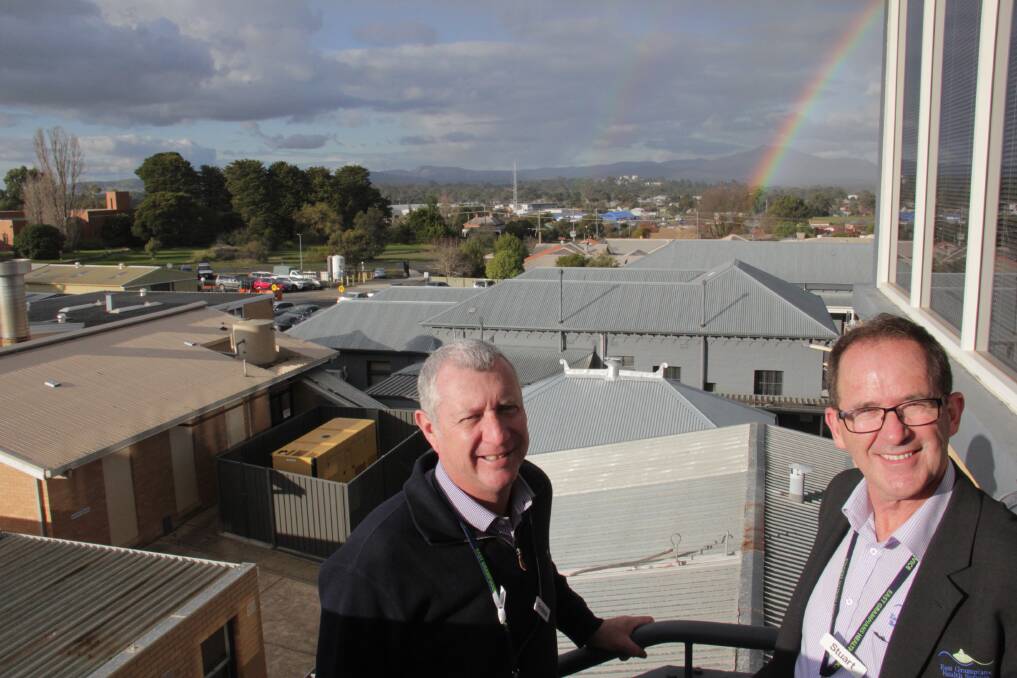
EAST Grampians Health Service is going green in a move that will result in more money put into health services.
Subscribe now for unlimited access.
$0/
(min cost $0)
or signup to continue reading
The emPOWERing East Grampians Health Service Solar Project will reduce power costs through the implementation of two solar projects at the Ararat and Willaura Campuses.
The project is set to commence in December after the contract was awarded last week to Cola Sola, a central Victorian solar company.
"We went through a rigorous tender process and our probity principles ensured that we chose a company who could provide high quality products with good warranties to keep future health service costs down," EGHS chief executive Andrew Freeman said.
The project has been made possible through a generous donation from the late Joe Kapp.
Monika and the late Joe Kapp are long term residents of the Ararat community and great supporters of the health service.
"Kappy would have been delighted to be able to contribute towards the emPOWERing EGHS solar project," Mrs Kapp said. "Joe was always a big supporter of East Grampians Health Service and believed in giving back to the community.
"We are fortunate to have a health service which develops innovative projects such as this, which will enable funds saved to be invested back into projects which benefit patients, clients and residents."
Another major player in the project is Ballarat Renewable Energy Zero Emissions, a group formed in 2006 with the objective of increasing sustainability within the region by promoting and developing renewable sources of energy.
BREAZE created the feasibility study that allowed the EGHS Board to evaluate the solar power opportunity, and provided expert guidance through the tender process.
The study found the health service's electricity costs had almost doubled in the last two years.
EGHS board chair Nancy Panter said the project helps support the state government's sustainability goals as well as directly benefiting the community.
"The solar power project has a strong return on investment for the health service, significantly reducing our power costs and allowing us the opportunity to invest back into the hospital which ultimately benefits our community," she said.
The health service joins a number of other organisations adapting to solar energy.
A couple of months ago the Ararat RSL installed solar panels on its buildings, and the Astor Cinema has had them for over 12 months.
"I had to do something because the power bill was astronomical, and it's reduced the power bill considerably," cinema part-owner Barry Byron said.
Other businesses with solar panels include Rural Steel, Autopro, Aldi, and Foster's Mensland among others.
Part-owner of Foster's Mensland Alana Foster said the move to solar was prompted by rising electricity use in the store.
"One of the reasons we put them in was because we put in reverse-cycle air conditioners, and then we realised it was going to be expensive to run them so we also put in solar panels at a similar time," she said.
"It has helped with our power bills."
Ararat Rural City Council announced late in 2018 it would undertake an energy efficiency audit of key council-owned buildings following a grant worth $23,800 from the state government.
The buildings being audited are the Ararat Library, the Ararat Fitness and Leisure Centre, the municipal offices and the Gum San Chinese Heritage Centre, and the project is ongoing.
While you're with us, you can now receive updates straight to your inbox each Friday morning from the Ararat Advertiser. To make sure you're up-to-date with all the news from Ararat and districts, sign up here.


